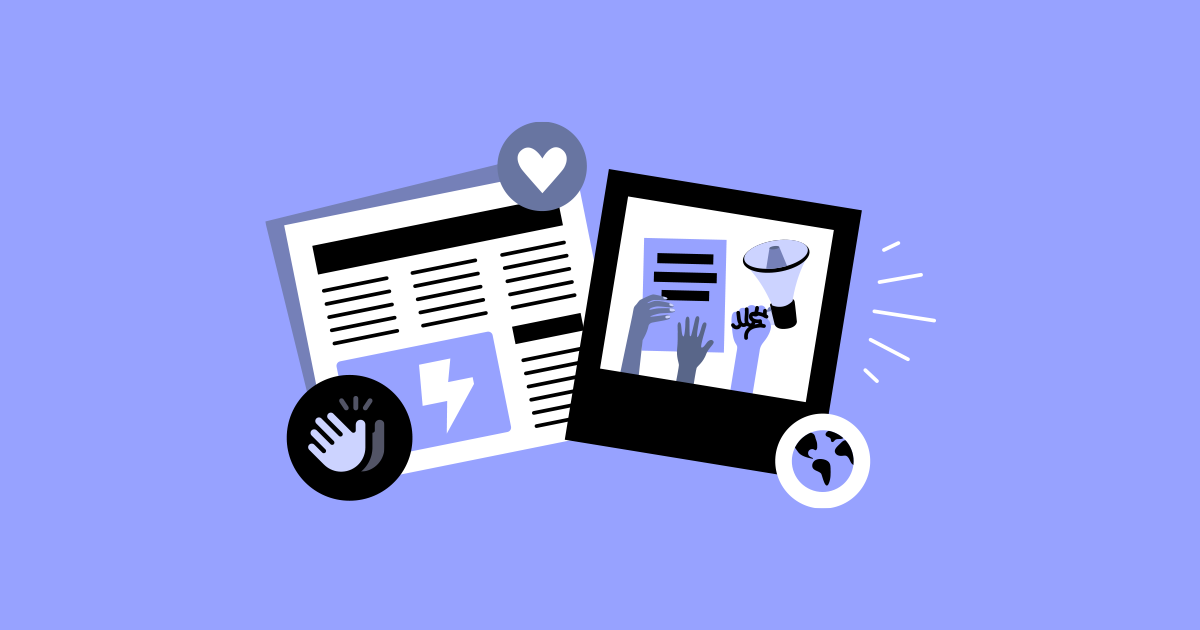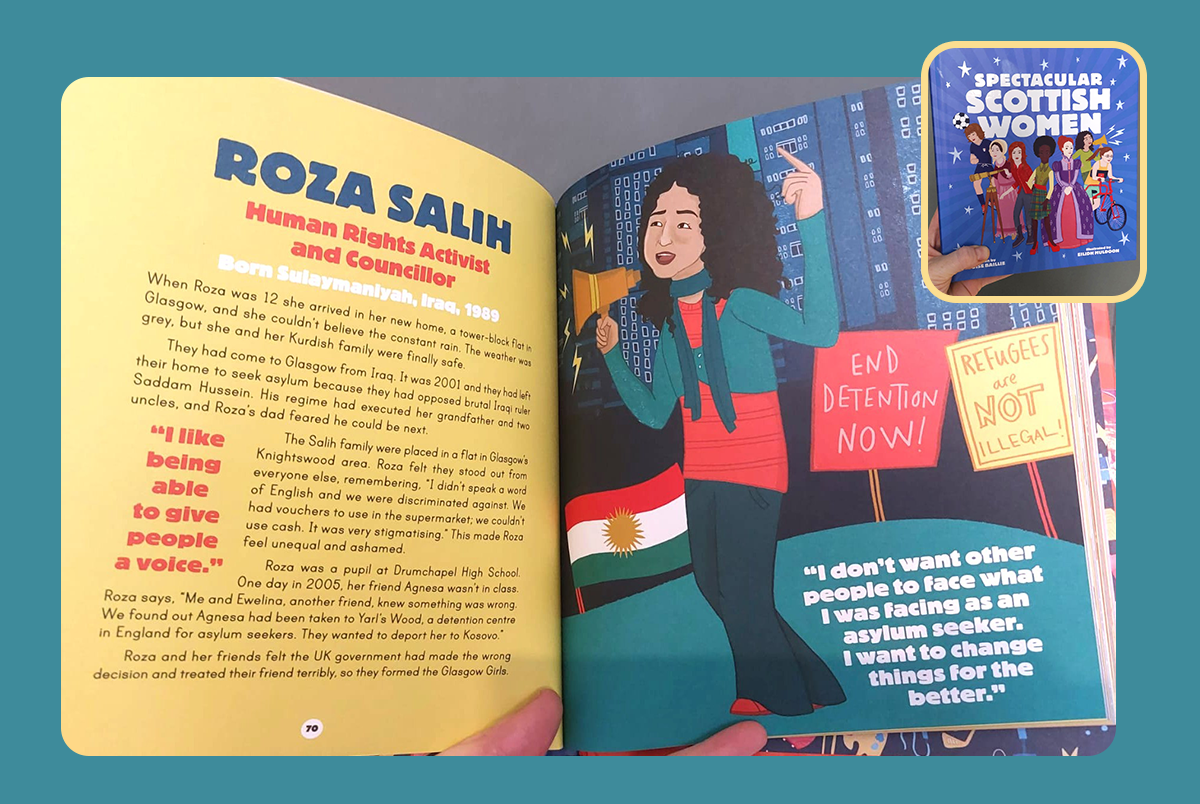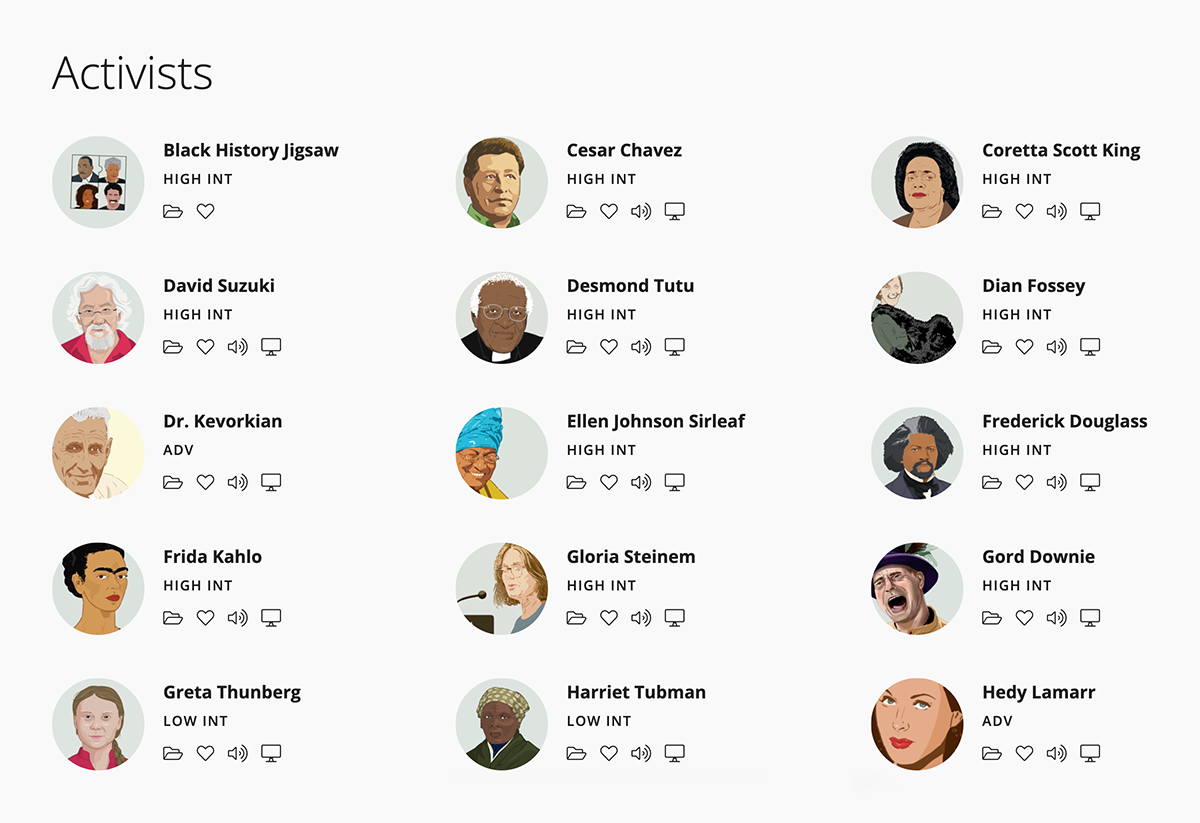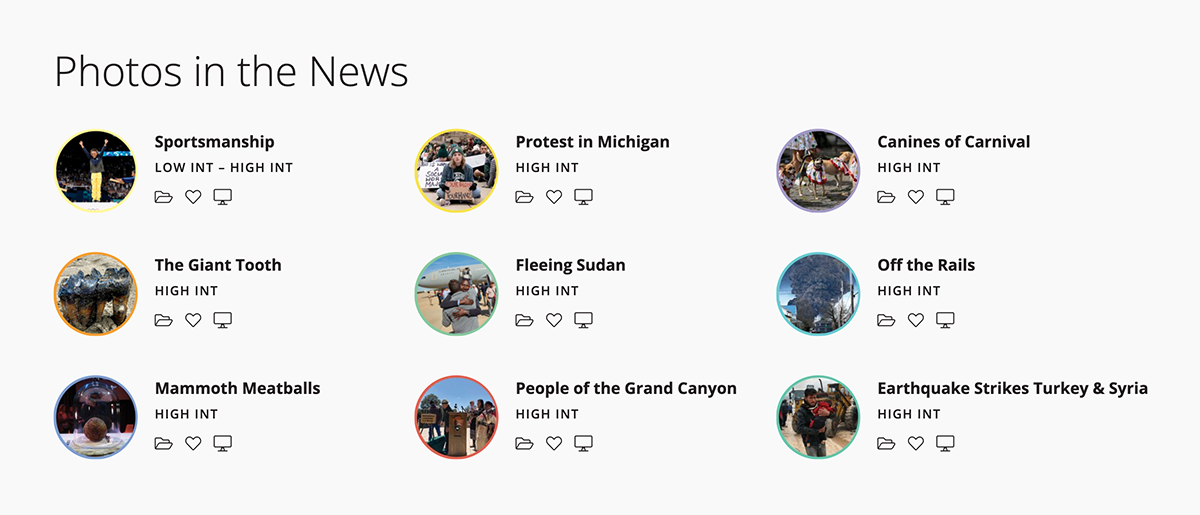Teachers & Learners as Changemakers: Making the World a Better Place

September 4, 2025

Share this post
Sometimes I need to give myself a shake and remind myself that everyone has the power to make tiny changes to Earth.
Those last four words are taken from one of my favorite songs by Frightened Rabbit. They play like a mantra in my head on days when the world seems overwhelmingly tough.
I might not be able to move mountains, regrow felled trees, or end world hunger, but I can do little things that make a difference. Many small actions can soon add up to much bigger collective improvements to the world we live in.
In this post, I look at ways we can support our learners to make tiny changes that can have a huge impact—and give you some real-world good news stories.
Believe in yourself & others
Roza Salih has long been one of the humans I admired the most. Her story is so inspiring that it was made into a film and a theater production, and she also features in the book Spectacular Scottish Women.

One of five "Glasgow Girls," Roza is now the first councillor from a refugee background in Scotland. Her family came to Scotland from Kurdistan to claim asylum when she was a teenager. At the time, the Home Office was carrying out dawn raids on asylum seekers whose claims had been unsuccessful.
Roza and her school friends saw the injustices of their classmates being placed in detention centers or deported. With the help of their teacher and the community, they successfully petitioned the Scottish government to end the detention of minors in Scotland.
This story is a testament not only to the power of youth voice, but also to how teachers can support learners to be changemakers.
You can watch Roza sharing some of her tips for how to make a difference and believe in yourself here: Standing Up for Refugee Rights.
Work collectively
Ali Waters is a young changemaker who has managed to collect one million pieces of litter around the world. This is an epic achievement to complete by the age of 11. Unsurprisingly, Ali did not collect all these individual pieces herself. As "Chief Picking Officer" for Kids Against Plastic, Ali enlisted the help of other litter pickers globally.
Ali is now working towards a new two-million target! You can find out more about Ali's campaign and get involved here:
In the classroom, we can facilitate discussions on topics that matter to our students and have them think about how they could work together to make a difference. We can also encourage students to work with parents, local community groups, charities, politicians, and any other willing volunteers.
For instance, students could take part in World Cleanup Day. This annual event takes place on September 20 and gives people around the globe the opportunity to participate in efforts to preserve and maintain a clean and healthy environment.
Inspire with changemakers
Nothing reminds us that we can make a change more than real stories of humans like ourselves who have made a difference. You could share the inspiring stories of Ali Waters, Roza Salih, or your own local heroes.
You could also use ready-made lessons on famous activists such as Viola Desmond, Malala Yousafzai, Martin Luther King Jr., and Greta Thunberg from Ellii's Famous People section.

Include globally important topics
Ellii has hundreds of lessons on current affairs, politics, activism, and protests. These are all a brilliant starting point to get students thinking about their own impact on the world.
Here are some sections you may like to explore:
1. Photo Prompts
These lessons start with a photo and are designed to boost discussion and critical thinking. Ellii's Photos Of The Week series compiles a selection of the key headlines while Photos in the News features popular news stories.

2. That's News to Me
This series of lessons, featuring content from Ellii's media partner The Associated Press, covers social justice, politics, environment, health, and education. New weekly lessons are often available at two or three proficiency levels.
3. Historic Events
The lessons in this section allow classes to explore topics such as racial issues, wars, movements and milestones, politics and economics, and diasters and emergencies.
Celebrate wins
Even small wins deserve to be celebrated. Get creative as you reward or visualize progress. Certificates, sticker charts, or visual progress trackers can all make participants feel good, and motivate people to continue.
I loved this idea from Harry Waters: Applauding wins with applause.
Do what you can with the tools you have
I am not a politician nor a billionaire, so my power and influence may seem small. It is easy to let your inner troll win and think of all the things you can't do. However, as educators, we all have a variety of skills that we can use to make a difference.
Here are some of mine to get you started:
1. I can cycle. So I have completed various long-distance rides to raise awareness and funds for good causes.
2. I can write materials. So I created a resource pack of visual tools, a sketchnote, and an infographic to educate people about the Boiling River and raise money to conserve this special place.
3. I can edit. So I compiled a couple of books for The Hands Up Project, which delivers English language learning through the context of stories, plays, and songs to kids in Gaza.
4. I can share. Social media allows us to easily share campaigns and content that we want more people to know about or help us with. The post I am most sharing at the moment is about my friend Ashraf Kuhail, author of "Stories Alive" and "Stories Reborn" for The Hands Up Project. He has been offered the chance to study a PhD in the UK and is raising money to bring his family to the UK from Gaza.
5. I can sketchnote. So I collaborated with other sketchnoters to be part of the prettiest recipe book in the world: Sketchy Recipes for Szymon. Sales of the book raise funds for a boy who desperately needs gene therapy.
6. I can educate. So I can bring globally important topics into the classroom, facilitate debates, inspire learners, and support them to be changemakers.
7. I can blog. So I can write posts like this to remind educators that we can make the world a better place, even if just a teeny tiny bit!
Everyone has a skill they can contribute, whether it is organizing a concert, selling cookies, attending a rally, making posters, or teaching a class to write poems or stories. We can ALL make (tiny) changes to Earth. What could you do?
How have you helped your learners to make the world a better place? Which ideas from this post would you like to use?
Comments
There are no comments on this post. Start the conversation!